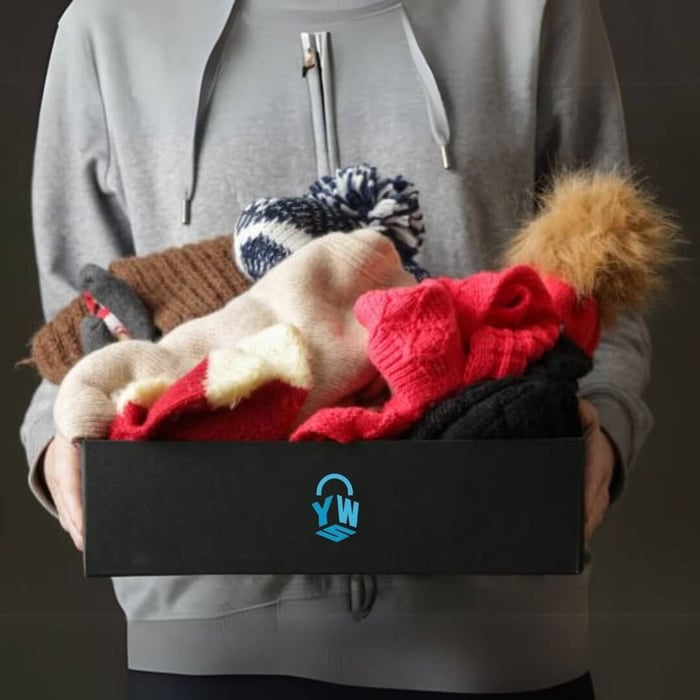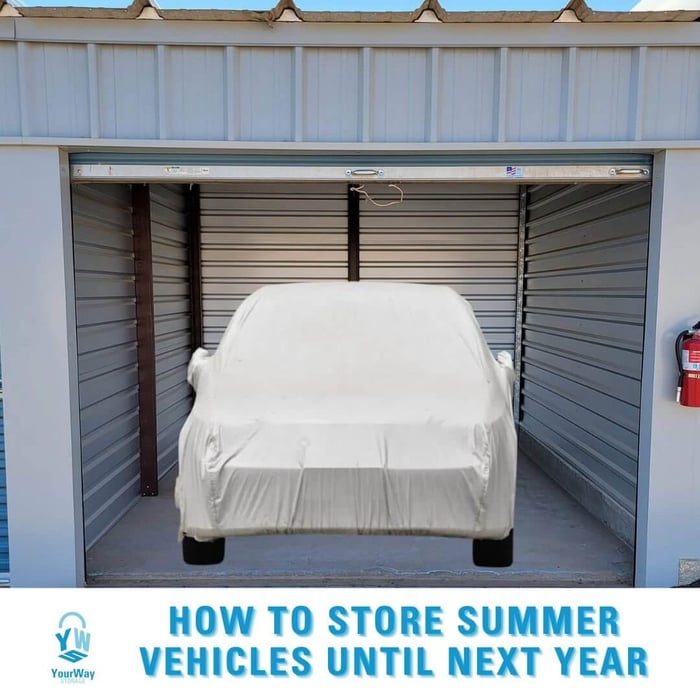Winterproof Your Belongings in Storage: A How-To Guide
Winter can bring challenges when storing items, especially at a self-storage facility. The cold and moisture can affect furniture, electronics, and other sensitive belongings. At YourWay Storage - Glendale, we’re here to help you protect your valuables from the winter elements with a few simple tips to winterproof your storage space.
1. Choose the Right Unit
- If possible, select a climate-controlled unit. Climate control helps regulate temperature and humidity, providing extra protection for sensitive items like electronics, musical instruments, and antiques. If you’re storing with YourWay Storage - Glendale, check with our team to see if a climate-controlled option is available.
2. Use Protective Covers for Furniture
- Cold temperatures can cause wooden furniture to crack and warp over time. Use furniture covers made of breathable material to protect wood and upholstery. Avoid using plastic, as it can trap moisture, leading to mildew. Furniture blankets or cotton sheets are excellent choices for allowing airflow while still providing a barrier against the cold.
3. Elevate Items Off the Ground
- In case of extreme winter weather or accidental leaks, it’s wise to keep items off the ground. Use pallets or shelving to create space between your belongings and the floor, reducing the risk of water damage.
4. Winter-Proof Electronics
- Electronics are particularly vulnerable to cold and moisture. Pack them in their original boxes if possible, and use bubble wrap or packing blankets for insulation. Place silica gel packs inside the boxes to absorb any excess moisture. Avoid plugging in electronics right after taking them out of a cold unit to prevent damage due to condensation.
5. Prepare Fragile Items with Extra Care
- Fragile items, such as glassware, ceramics, or art, can be impacted by fluctuating temperatures. Wrap each item individually in bubble wrap or packing paper, and store them in sturdy, insulated boxes. For added safety, place these boxes on shelves or at the top of stacks to avoid accidental breakage.
6. Avoid Storing Liquids
- If possible, avoid storing liquids in your unit during winter. Freezing temperatures can cause liquids to expand, which may lead to broken containers or spills. If you need to store liquids, make sure they’re in durable, sealed containers to prevent leaks and damage.
7. Inspect and Seal Boxes
- Check the condition of boxes to ensure they’re strong and intact. Use plastic bins for additional protection and label everything clearly for easy identification. Sealing boxes tightly helps keep out dust, pests, and moisture.
8. Visit Your Unit Regularly
- During the winter months, make a habit of checking your storage unit periodically. Look for signs of moisture, pests, or damage, and make adjustments as needed. A quick inspection can prevent potential issues from becoming major problems.
9. Optimize Space for Airflow
- Arrange items with some space between them to allow air circulation, which helps to prevent mold and mildew. Don’t overstack items or cram the unit too tightly; giving items breathing room is key in winter.
10. Talk to YourWay Storage - Glendale Staff
- If you have specific concerns about winterproofing your storage unit, don’t hesitate to ask our team for help. We’re here to provide advice, assist with climate control options, and ensure you have the right resources to keep your belongings safe through the colder months.
At YourWay Storage - Glendale, we’re dedicated to making storage easy and effective year-round. By taking these steps, you can ensure that your stored belongings stay in prime condition throughout the winter season. If you have any questions or want to learn more about winter storage tips, feel free to contact our team!




